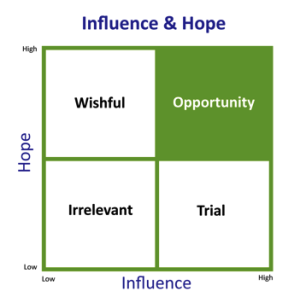I have often said “sports sell hope.” I am a Kansas City Royal’s fan, and tonight is the sixth game of the World Series. The Royals are down 2 games to 3 to the San Francisco Giants. Tonight’s game is back in Kansas City. I sure hope the Royals win.
Hope is defined as “the feeling that some desire will be fulfilled.” Hope is an interesting emotion. First, we must recognize that hope is an emotion. There is a clear feeling attached to hope. I have a vivid sense of that feeling as I think about the Royal’s playing to win another game.
Second, hope is clearly attached to a desire. A desire is something that I want beyond what I currently have. Desire is also directly connected to things that we value. Currently, the Royals (the team I am a fan of) have not won the Series yet. The desire I have for the Royal’s to win has not yet been fulfilled. It is beyond what currently exists. Also, I clearly value the Royals and their performance. If I did not care about the Royals winning, I would not need any hope.
Third, unfulfilled hope equals disappointment. Yes, I will be disappointed if the Royal’s lose. That disappointment will vary from one person to another. But, anything that we hope for but do not get, leaves us let down.
What is interested about my hope for the Royals to win is that I have absolutely no influence over the result. I am not on the field, in the locker room, or cheering from the stands. My opportunity to influence the outcome does not exist.
As a leader, it is often your responsibility to encourage and inspire people to have hope. But, it is important to understand the relationship between hope and influence. We have to recognize the hope we can influence, and the hope that we cannot influence. Here is a model to illustrate the relationship between hope and influence.
Opportunity = High Influence and High Hope
You recognize how you can influence the outcome and have the autonomy to make this happen.
Wishful = Low Influence and High Hope
You recognize that you do not have influence on the outcome and can only wish for the results you desire.
Trial = High Influence and Low Hope
You recognize there is little hope, but you can do something to possibly affect the outcome. This might eventually move into the opportunity quadrant.
Irrelevant = Low Influence and Low Hope
You recognize the need to not focus on this circumstance and redirect your time and attention.
Consider a current circumstance in your world. What is your level of hope and influence on this circumstance?




